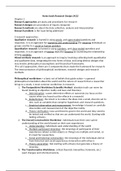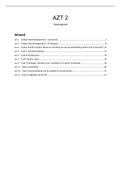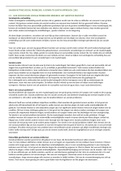Summary
Book Summary Research Design (AS2)
- Course
- Institution
- Book
This document is a summary of the book: Research Design (5th edition, December 2017) Creswell & Creswell. ISBN: 9781506386768. This book is used among other things in the course 'academic skills 2'. This document contains a summary of chapters: 1, 2, 3, 6, 7, 8, 9 and 10.
[Show more]







